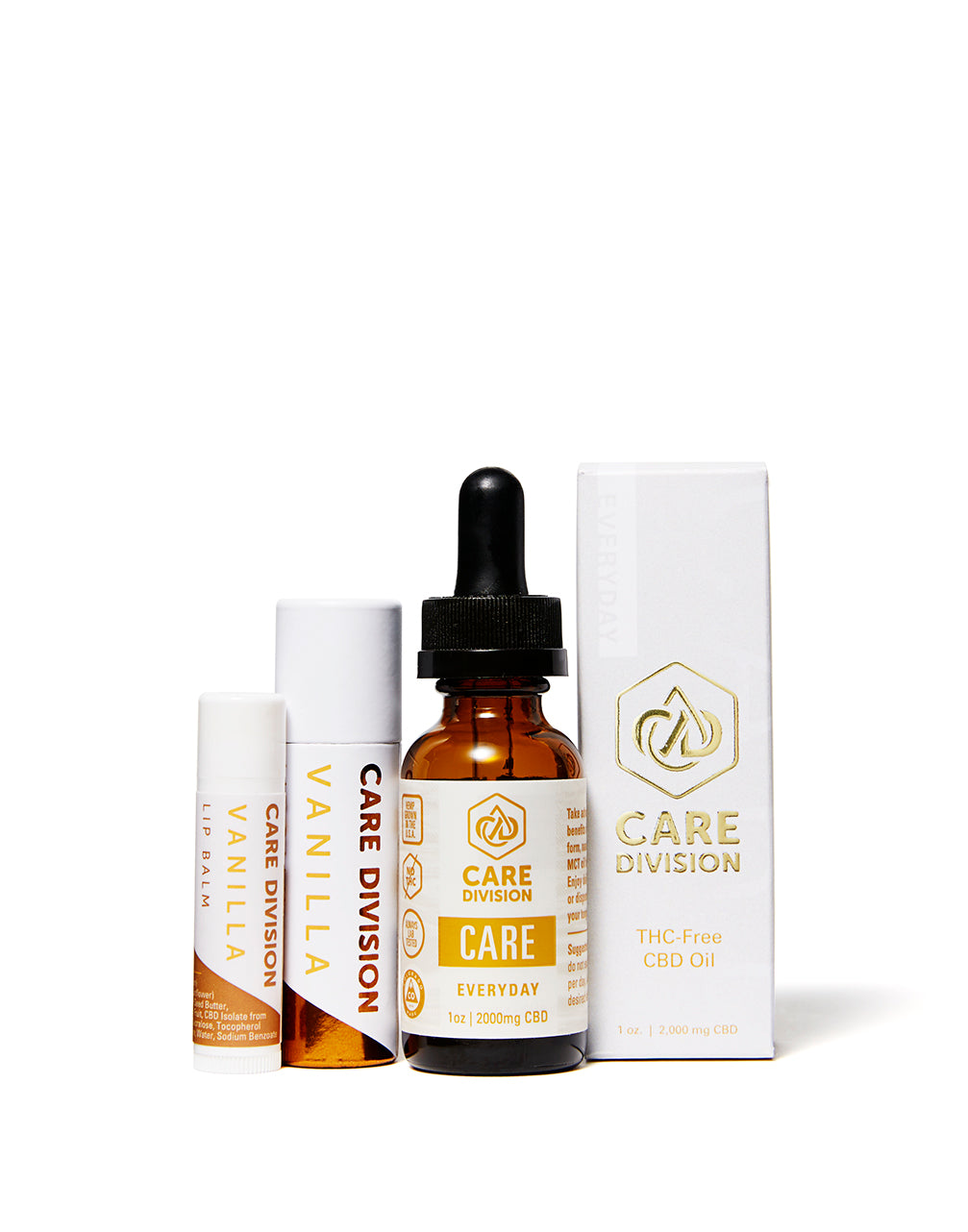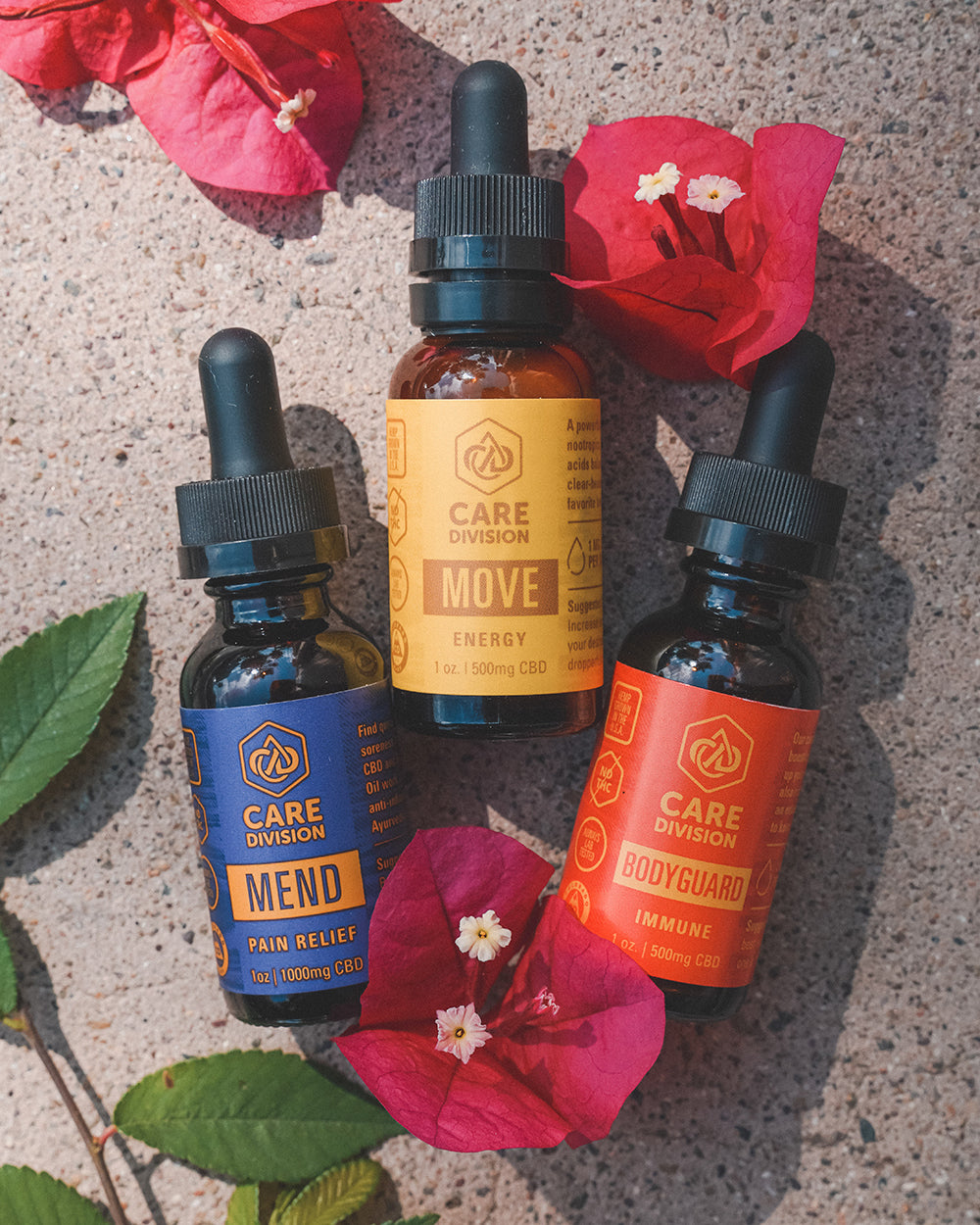Keep in mind:
“CBD OIL” IS RARELY PURE HEMP OIL.
Instead, CBD Oil tends to be a mixture of a CBD concentrate with a carrier oil.
Carrier oils do exactly what it sounds like, they carry a substance with them.
CBD is a fat-soluble cannabinoid, which means it dissolves easily into any fat. All fat isn’t the same though.
Some fats contain more long-chain fatty acids which are harder to digest (think animal fat), while others contain more medium-chain fatty acids which are immediately digested for energy (think coconut oil). Short-chain fatty acids are rare before your body digests other fats, but clarified butter does have short-chain fatty acids.
What does this all mean for CBD?
BY AND LARGE, MEDIUM-CHAIN FATTY ACIDS ARE THE BEST CARRIER FOR CBD.
This is why everyone uses Coconut Oil. Coconut Oil is extremely rich in medium-chain fatty acids. It isn’t the only oil that has a lot of CBD absorption enhancers in it though.
With that in mind, lets break down the 3 best carrier oils for CBD:
-
MCT OIL
MCT oil is a highly concentrated, isolated source of medium-chain triglycerides. Typically Coconut or Palm oil are refined into pure MCT Oil. MCT oil is an excellent carrier oil for CBD because not only does the CBD concentrate dissolve readily, your body also readily uses MCT oil for energy. Your body will not store away MCT oil as it would other fats. The oil is also a bit thinner than other oils, which just makes it generally easier to work with.
Instead of being stored for future applications, MCT Oil goes straight to the liver, for immediate processing. This helps the CBD will hit you a bit faster than it normally would.
-
NIGELLA SATIVA SEED OIL (BLACK CUMIN SEED)
Black Seed Oil is a great carrier for CBD due to its Thymoquinone content. Thymoquinone is a very powerful anti-microbial, and anti-inflammatory substance found naturally in Nigella Sativa oil.
In conjunction with CBD, Black Seed oil works to dramatically reduce inflammation. Topically speaking, the oil has a very high oleic acid content, which helps topical CBD preparations to sink in, along with any other active ingredients in whatever you might be taking. When taken orally, the oleic acid content works to slow the absorption of CBD into your system, creating a slightly more time-release effect.
-
COLD-PRESSED OLIVE OIL
Let us not get into the discussion of what “Real” or “Fake” olive oil is, and just assume you are using real cold-pressed olive oil. Olive Oil is an extremely rich source of Oleic Acid (much like Black Cumin Seed oil), which helps reduce inflammation a great deal.
Unfortunately, Oleic Acid is harder for your body to absorb than other fats, so it slows the CBD absorption process. Olive oil is also a bit thicker, which makes it slightly harder to measure. It also costs substantially more than MCT Oil, so it isn’t used as often.
That being said, Olive Oil is has shown to be protective against heart issues in relatively low doses. The added length of the fats can also help release CBD more slowly over time compared to an MCT Oil tincture.
-
GRAPE SEED OIL
Grape Seed oil is a popular choice due to its resilience in high-temperature cooking, and relatively similar nutritional profile to Olive Oil.
The key difference being, Grapeseed Oil lacks saturated fat that is present in olive oil. That is huge because saturated fats tend to carry CBD a bit better than other fats. Grapeseed oil is an excellent carrier for topicals, however!
Since it absorbs very quickly, leaving little residue, it is a highly desirable oil for topical CBD. Is it best for tinctures?
Absolutely not. It is, however, something you should look for on any salves or balms you use.
This will end up being an ongoing series, as the subject is far too deep to even scratch in one post. Its a start though!


